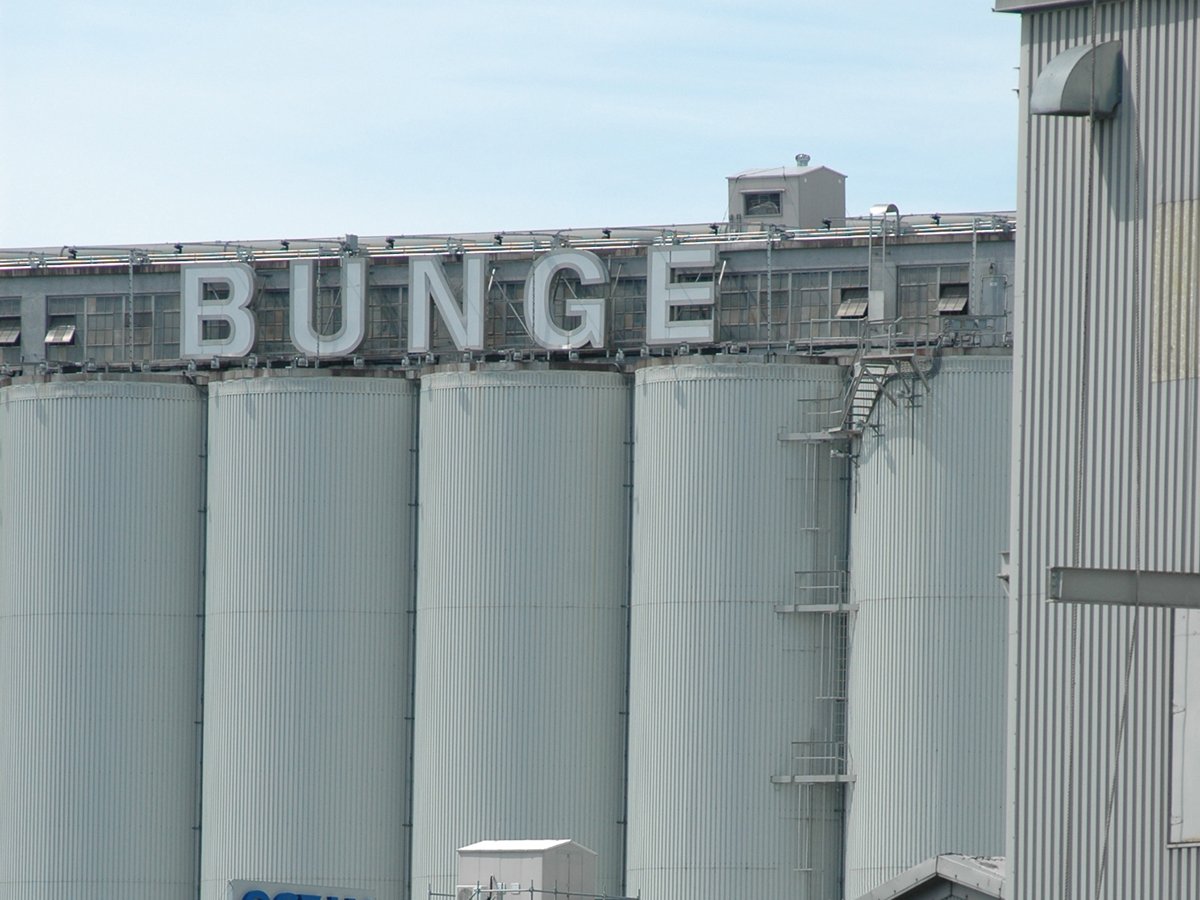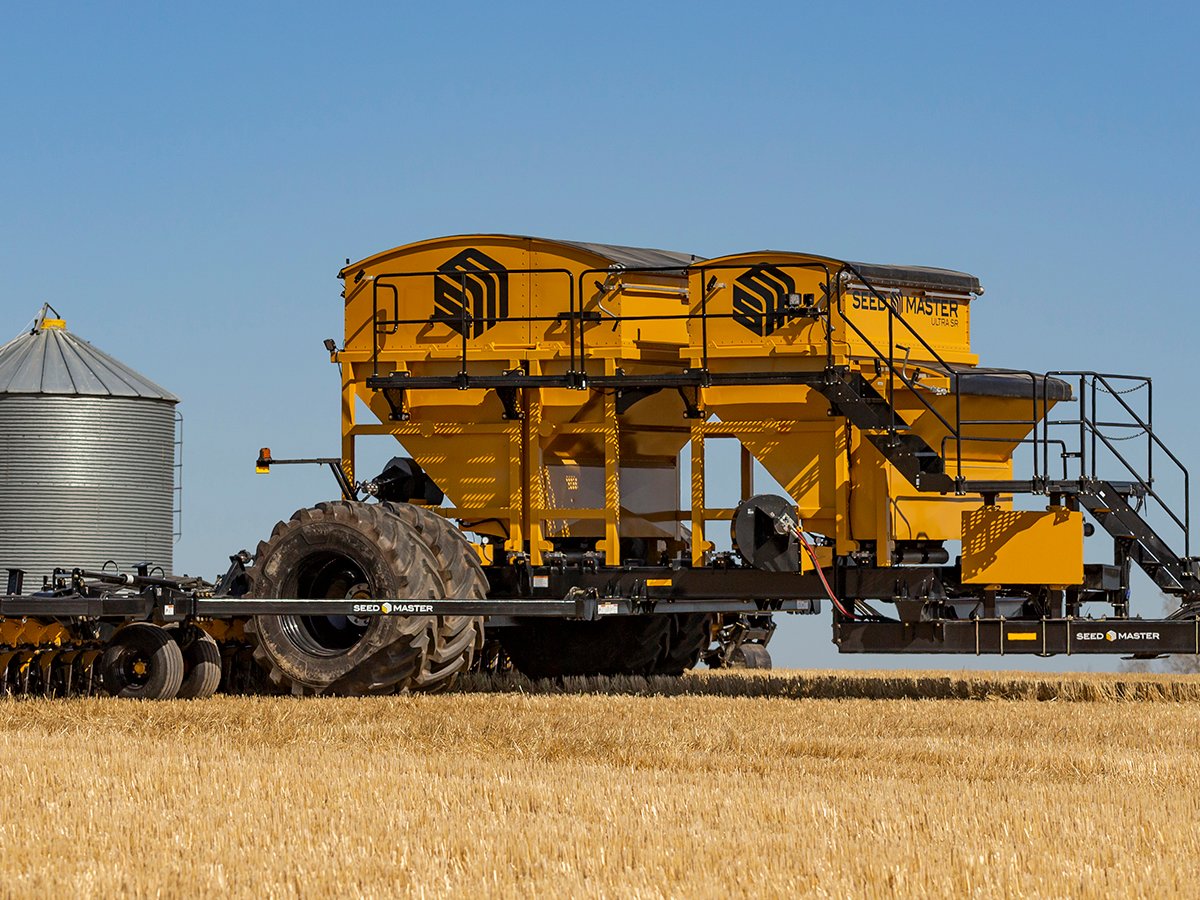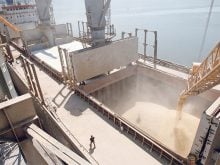The postponement of tariffs on Canadian exports to the United States has farm equipment manufacturers left wondering how to proceed.
“Canadian agricultural manufacturers export more than $4.2 billion of agricultural equipment around the world, with 80 per cent of these exports destined for U.S. markets,” Donna Boyd, president of the Agricultural Manufacturers Association of Canada, said in an email.
Follow all our coverage of the tariffs situation here
Read Also

Bunge’s crop mix is changing
Bunge has predominantly been a soybean processing firm, but that’s about to change after the merger with Viterra with softseed processing and grain merchandising gaining ground.
“We know well that a North American trade war would directly threaten North American agriculture and manufacturing sectors. It would trigger severe disruptions in our integrated supply chains, increase costs to U.S. farmers who depend on Canadian-made equipment and raise the cost of food for families across North America, all while jeopardizing thousands of high-value jobs in Canada.”
So there’s a lot at stake, and the uncertainty leaves brands in a holding pattern waiting to see how things shake out.
“it’s certainly something we’ve talked about and tried to anticipate; how we were going to respond to this,” says Allan Wiens, chief executive officer of Saskatchewan-based SeedMaster.
“It’s challenging to come up with a plan when the implementation of whatever is going to happen is so up in the air.”
SeedMaster is in the middle of a plant expansion outside Regina, and Wiens says the tariff threat won’t derail that.
“It hasn’t slowed our expansion. We’re confident whatever tariff happens will be a short-lived negotiating tactic as opposed to a long-standing agreement or issue to deal with. It certainly made us think, though, on how to be as efficient as we can and how to come out of this uncertainty a better organization.”
Speaking on Sirius XM radio to Michael Smerconish, former U.S. ambassador to Canada David L. Cohen agreed the move was likely a ruse.
“I always thought this was a tactic to get something else. I wish he would have been clearer about what it is he wanted.”
One of Trump’s several stated goals for tariffs is to bring an increased level of manufacturing back to the U.S. Like many other manufacturing executives, Wiens doesn’t think it’s practical for his company to create an entirely new facility in the U.S. to service that market, even though it’s an important one.
“We haven’t explored that. A huge portion of our market is in Western Canada. We certainly want to grow our market position in the U.S., but I think there’s a way to do it from Canada. We feel like this is the right place to have the business. We don’t intend to leave because of a tariff.”
Laurent Letzter, managing director of Horsch Canada, agrees that companies likely won’t make major capital investments in manufacturing plants in the U.S. as a result of fluctuating political policies.
“We know politics change over time,” he says.
“As a company, you have to think longer term than just a political mandate. At the end of the day, there are a lot of things out of our control, and we just have to adapt.”
Companies such as Horsch that have an international manufacturing footprint have the advantage of servicing demand from a few different plants. The company already has a U.S. facility, but it could avoid any retaliatory Canadian tariffs by importing implements in from its other plants instead.
“It may be an opportunity for some of our other factories because we have factories in Germany and Brazil,” he says.
“So we could react in a way and maybe import less American products into Canada.”
An imposed 25 per cent tariff by the U.S. would likely cause a significant decline in the Canadian dollar, which would reduce some of the price increases to U.S. buyers of Canadian-made equipment, but the effect may not be that significant.
“I believe the offset in the currency is not going to offset the tariff,” says Wiens.
“I believe we will see a price increase if this does come to fruition. I believe the supply chain is going to dictate that.”
That price increase would likely be significant and soften demand for Canadian-made equipment in the U.S.
“It’s not going to be business as usual because nobody can afford 25 per cent tariffs on farm equipment,” says Letzter.
“Farm equipment prices are tight and they’re high. There’s no chance 25 per cent tariffs can keep the business rolling as usual. It will be a strict decline in sales.”
















